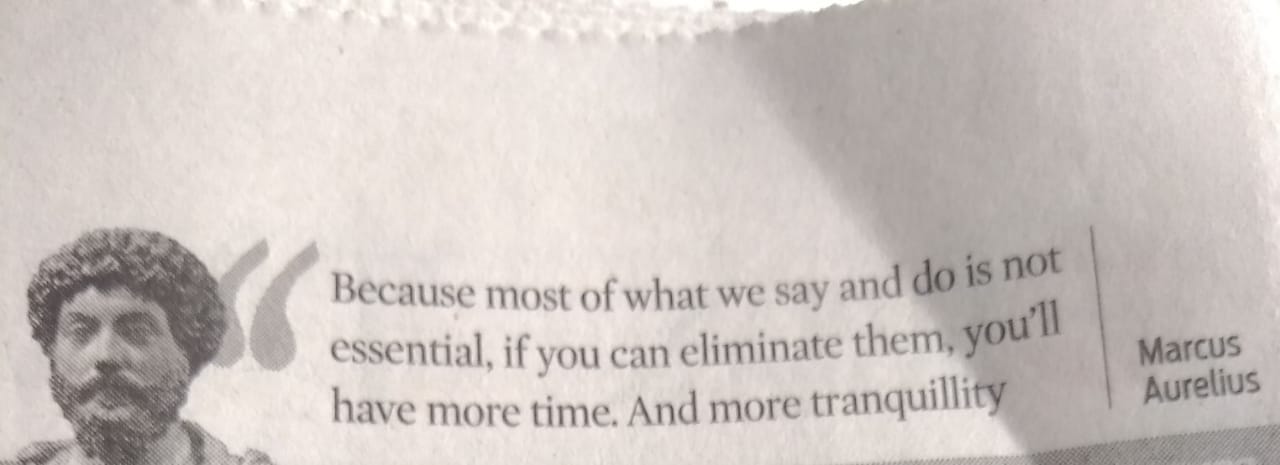Can you really eliminate the non-essential?
And what is it to be #Humans?
This quote was going around and being discussed in one of the Whatsapp groups that I participate in. And one could call this activity also as non-essential.
But is it really possible or feasible? If you look at us humans, we are not build to eliminate the non-essential. Part of our animal brain just wants to do what it wants to do. We also ‘derive’ the essential from the non-essential. If we don’t do the “non-essential” how would one derive what is essential to one-self? Without the new experiences and patterns, where will these new essential things come up?
So, I guess in this particular case Marcus Aurelius was being very idealistic. I am a practicing stoic myself. But, someone who wonders whether it is feasible to be a stoic no matter what in all situations. Like a pre-programmed robot, following a set of rules. Without emotion, without feelings, and in this case above without wasting time.
In my last month or so I have been experimenting with eliminating the “non-essential” to create space for the essential. I am still unhappy and there is no tranquility. That is because in spite of the space and the emptiness I am unable to do the essential. Many of what I consider essential require the hard work of creating something new every day and I struggle to take that leap. So, it is not cut and dry and often impossible to just focus on the essential, though it is a bloody good idea if one can do it.
I have extracted the full quote below for better context:
If you seek tranquility, do less. Or do what’s essential – what the logos of a social being requires, and in a requisite way. Which brings a double satisfaction: to do less, better. Because most of what we say and do is not essential. If you can eliminate it, you’ll have more time and more tranquility. Ask yourself at every moment, ‘Is this necessary?’
— Marcus Aurelius “Meditations”
When you read the expanded version above, you realize a few more things. One, this works only if you seek tranquility. Two, to seek the tranquility that you desire, one must be willing to less by eliminating things that are not essential.
And if you eliminate it, you might have more time and tranquility - here is the challenge, the “if” is a big if and Marcus missed the word “might” - he guarantees that you will have more time and tranquility (perhaps a lost in translation from his original Medival Greek writings)
Many a time, a small simple single-line quote like the above triggers large amounts of thoughts and evaluation around that subject. That’s me. How is it with you? What did you think? How did this resonate with you?


